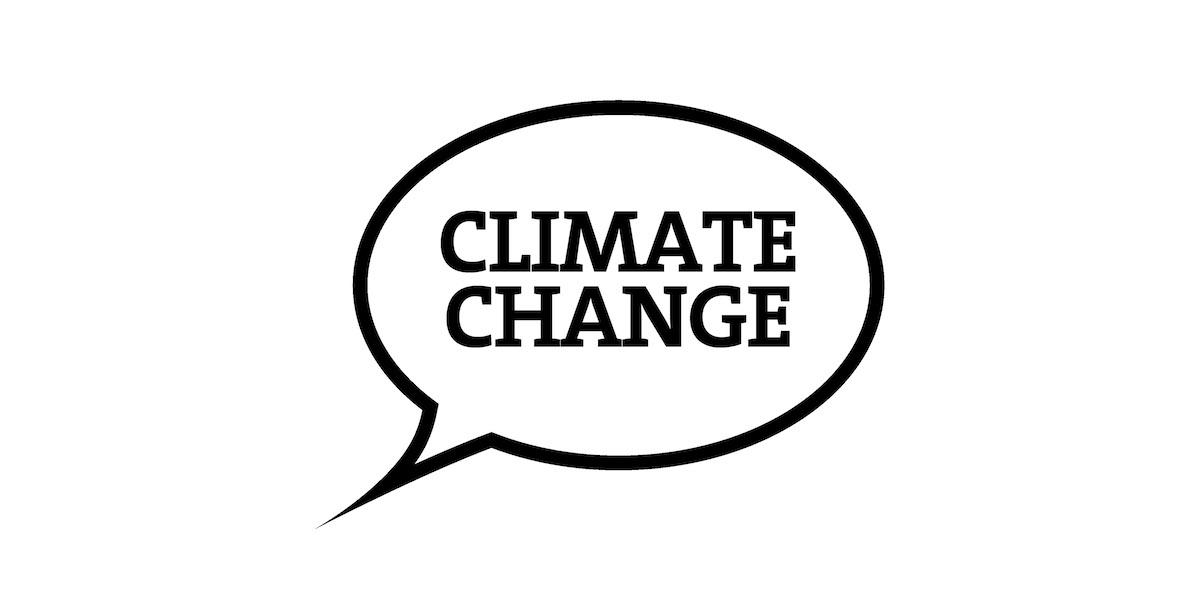Tips for Talking About Climate Change
One of the most important things we can do about climate change is to talk about it.
Talking about climate change may not be easy, but it makes a difference. We each have a real influence on the people in our lives.
Each situation and person is different, so use your best judgement. However, here are some guiding principles to help make the conversation a positive experience:
Bring it up with current events: Start off by talking about topics in the news, such as extreme weather events like wildfires or storms.
- “It was pretty crazy when California was on fire, huh?” [After talking about the fires for a while] “Do you think those fires have anything to do with climate change?”
- “Did you see photos of the hurricane that hit [xxx]? Unbelievable.” [After talking about the storm for a while] “I’ve read that climate change is making storms and floods worse. Have you heard that?”
Don’t try to convince the other person of anything: If you do, they may get defensive and the conversation will go nowhere. Instead, focus on listening and learning about their perspective. Which brings us to the next tip…
Listen, listen, listen: This might be difficult (especially if you know a lot about climate change), but this is probably the MOST important tip. Let the other person talk. Ask questions if they are hesitant. Let them know you hear them. Refrain from “taking over” the conversation. Wait to share your perspective after they’ve done so first.
- “That’s a good point.”
- “Can you tell me more about what you mean?”
- “Why do you think that is?”
- “I hadn’t heard that. That’s really interesting.”
Don’t lecture… just be human: No need to be an expert on climate science (experts are annoying at the dinner table anyway). You are the expert on you. Focus on your personal experiences. Share your story. Put yourself at the same level as the other person. Remember that you don’t know all the answers, and that you’re trying to figure things out, just like them.
- “When I first heard about climate change, I thought…”
- “The thing that worries me the most is…”
- “I once read that [xxx]… it made me think, wow, this is really urgent…”
- “I still have questions about…”
Talk about the EcoRight, if appropriate: Bringing up politics may be too inflammatory for some people, but if you think it’s a good idea, talk about the EcoRight.
- “I used to think no other Republicans cared about climate change, but then I heard about Bob Inglis… Conservative environmental groups do exist. I’m a member of republicEn…”
- “What gets me really excited is knowing there are solutions to climate change that align with conservative principles…”
- “Historically, the Republican Party has been the party for the environment… conservatives should be out in front when it comes to climate change, instead of letting the Left own the issue…”

Make them want to talk about this again: The goal isn’t to convert people into climate activists after one talk. The goal is simply to have a civil conversation about climate change and open the door to continuing the dialogue over time (because these things take time). Plant ways to pick this up again later.
- “I saw an interesting video about this. Want me to send you the link? I think you’ll like it.”
- “I can email you info about republicEn. I’m curious to hear what you think of them.”
- “Can you send me that article you were talking about? I’d like to read it.”
TIPS FROM THE COMMUNITY
We can learn a lot from one another. Here are some tips and words of wisdom shared from members of our republicEn community:
- “Appeal to stewardship, conservation, care of our lands and waters. Don’t push the science too much.”
- “Show empathy and be understanding that their view is not horrible or crazy.”
- “Depends on the individual — big time! Go slow, sound out the other person to gauge their views and comfort level and look for a good path forward. Emphasize solutions that are win-win — good for the economy and the environment, job-creating, innovative, etc.”
- “I try telling my personal experiences. Describe my thoughtful journey.”
- “Start where people are. Be compassionate and supportive. Acknowledge people for caring enough to speak about climate change. Keep the conversation basic and focus on solutions.”
- “Ask about others’ thoughts and don’t react to things you don’t like. Just try to confirm things you can agree with and then ask permission to share your thoughts on some items.”
- “Don’t try to ‘win’ the argument. Don’t bombard the person with facts. Do meet them where they are at. Don’t judge. Do be respectful.”
- “I have personally flipped several climate agnostics and deniers simply by being a conservative, trusted person to them. When people hear about climate change from people in their own communities, whom they know and trust, they will begin to engage and desire some action.”
MORE RESOURCES
- The Secret to Talking about Climate Change: A fun animation about how to have a constructive, compassionate conversation about climate (also found at the top of the page).
- A video to show Uncle Charlie: Looking for a short, compelling video to share with folks after your climate talk? Try this video about our own Bob Inglis’ evolution on climate.
- What is the conservative answer to climate change? Talking points about how to tackle climate change in a fiscally conservative way.
A little talk goes a long way. Will you talk to someone you’re close to about climate change?
